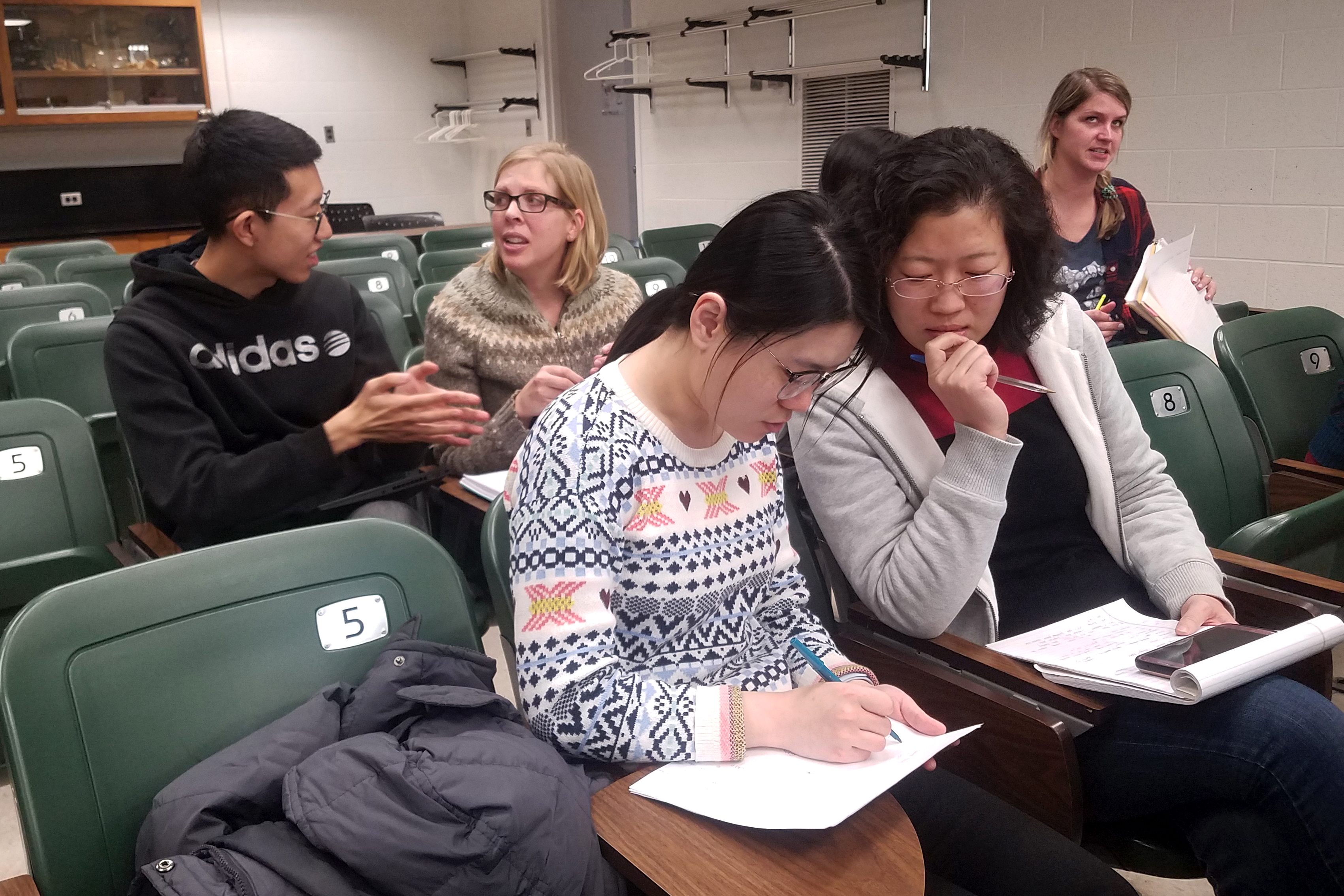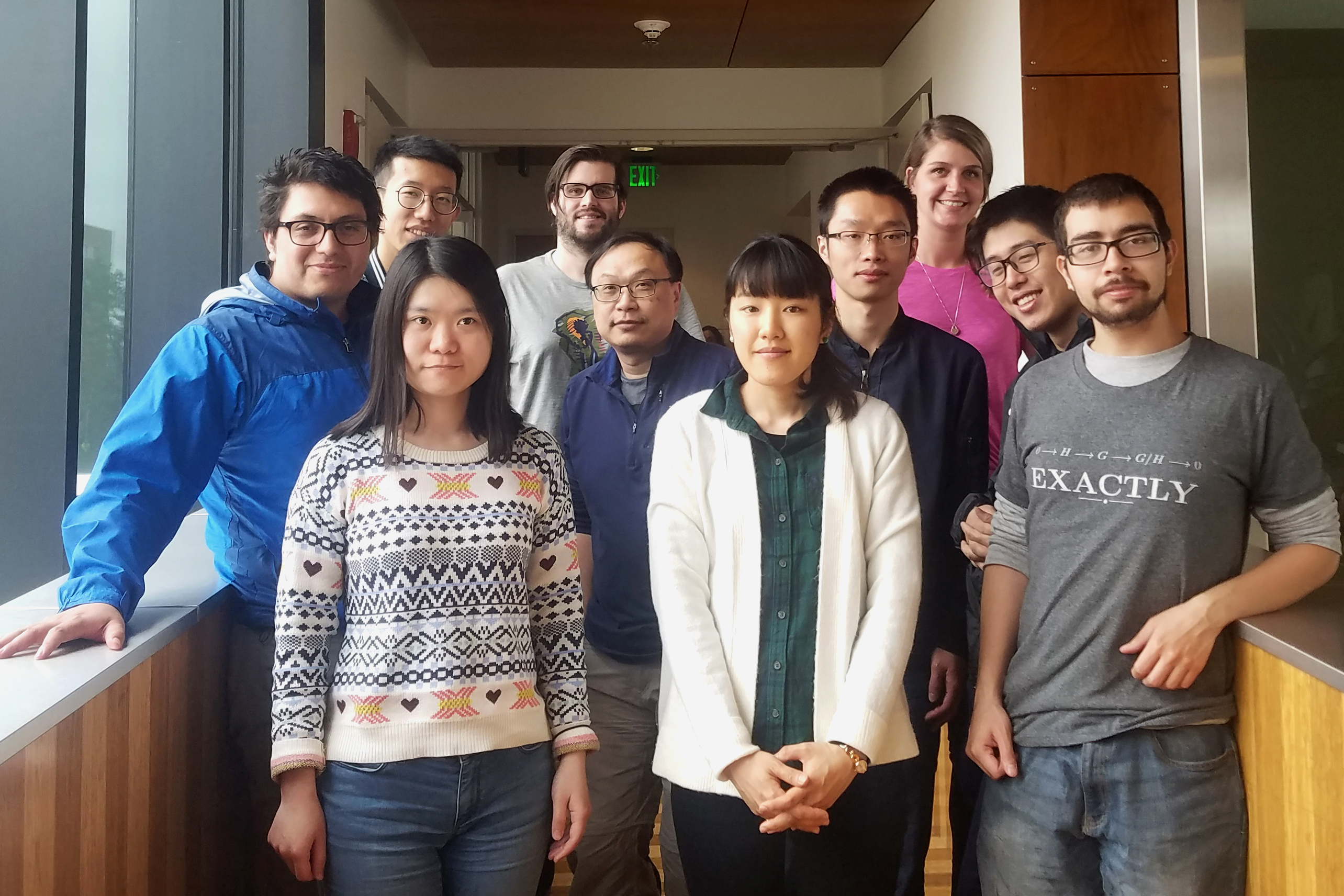
As technology becomes more integral to agriculture, the demand for professionals skilled in both trades continues to rise at a fast clip.
Michigan State University (MSU)’s IMPACTS — Integrated Training Model in Plant and Computational Sciences — program brings together graduate students studying plant sciences and computer sciences to brainstorm global agricultural solutions.
Shinhan Shiu, director of IMPACTS and professor in the MSU departments of Plant Biology and Computational Mathematics, Science and Engineering, said the cross-training is critical to address future agricultural needs.
“The goal of the program is to get the plant scientists to have a stronger computational skill set, and at the same time, get the computational scientists to understand what the grand challenge problems are we’re facing in biology so we can join forces in solving these problems,” said
Data matters
Data is one way to gauge whether a plant is growing and producing optimally.
“Nowadays, we can collect a lot of information we cannot see,” Shiu said. “We can grind things up and do experiments to look at the DNA in every species examine every single gene in that DNA. At the same time, we’re able to measure many more things about plants with sensors. We can fly drones in the field. We can have satellites looking down on Earth to look at how plants grow.”
That’s where IMPACTS comes in, said Robert VanBuren, assistant professor in the MSU Department of Horticulture and IMPACTS trainer.
"Plant science is moving very quickly into computational sciences, data science, precision agriculture, engineering."Robert VanBuren, assistant professor, MSU Department of Horticulture; trainer, MSU IMPACTS program
“Plant science is moving very quickly into computational sciences, data science, precision agriculture, engineering,” he said. “IMPACTS is aimed at training the next generation of plant scientists, to have strong skill sets in plant science, but also in data science and computer science and mathematics. It’s really aimed at training students at the cutting edge of these technologies.”
From classroom to career
IMPACTS has five components :
- Three core courses
- A forum
- An annual symposium
- Internships
- Outreach

Students, or trainees, funded through IMPACTS and selected as part of a cohort must complete all required courses and an internship, and they receive funding to attend meetings and conferences. Those interested but not funded through IMPACTS can participate in any component, but aren’t required to complete all of them.
“A mathematician and a biologist speak kind of different languages, so it’s fun to get them in the classroom together and trying to think about the same problems,” VanBuren said.
The main focus of IMPACTS, though, is career development.
“The only thing we’re interested in — it’s not their grade, it’s not whether their thesis project worked out or not — what we’re aiming for is that the students work on really hard problems, and get enough training that they’re ready for a career in solving challenging problems,” Shiu said.
“That job can be anywhere: academia, industry, governmental agencies, non-government organizations — any place that they can apply what they learned here for the next stage of their career.”
Robin Buell, MSU Foundation professor in the Department of Plant Biology and an IMPACTS trainer, said the skills trainees develop makes them more marketable to potential employers.
“There are major agricultural companies that want somebody who knows something about data science, machine learning, artificial intelligence — they want people to be able to do that for plants,” she said.
Idea to reality
It was Buell who approached Shiu in 2017 about applying for the grant that ended up funding the IMPACTS program. IMPACTS is funded by a five-year, $3 million grant from the National Science Foundation Research Traineeship Program (NSF-NRT), with additional support from the MSU Graduate School and Vice President's Office.
“IMPACTS actually started out as a group of plant scientists who has been interacting for over 10 years,” Shiu said. “All of us work on various aspects of using some aspect of computation to solve plant biology problems. We had been talking to each other and thinking about various different issues in terms of what kind of important problem there is and more so, how can we better train students?”
“Robin is the one who brought this up [and suggested] that we bring this to the group to talk about the possibility of applying. We have such long history in our interaction, so it was very easy for us to just pitch ideas and brainstorm about all the possibilities.”
IMPACTS is the first program of its kind at MSU. Similar programs exist at Iowa State University, and, within the Big Ten, Penn State University and Purdue University.
The inaugural IMPACTS cohort had seven students: Three studying plant sciences, three studying computer sciences, and one studying engineering.

“This first cohort was our experimental cohort,” Shiu said. “We recruited seven students from the computational science and plant science disciplines in order to test out a few things and have them help us co-organize all kinds of different activities.”
Shiu and his colleagues recently announced their second IMPACTS cohort, this time of eight students, for the 2019-2020 academic year.
Learning and growing
For Shiu, the most rewarding part of IMPACTS has been watching students from different disciplines communicate with one another.
“Traditionally, graduate students sit in a lab doing their own research. They don’t really go out of their way to talk to people across disciplines,” he said. “IMPACTS is a rare forum for them to be able to actually practice communicating with scientists from other STEM fields and realize how different they are. They are worlds apart, but because of IMPACTS they are so much closer now than before.”
Buell said she, too, sees the benefit in the regular communication between data scientists and plant scientists that IMPACTS offers.
“It’s a way to have graduate training, not just in my little plant biology, plant science silo, not just in my computer science silo, but to bring these students and have them work much more closely," she said.
Though IMPACTS is geared toward graduate students, it’s also resulted in new connections between faculty in plant sciences and computational sciences. A plant biologist by trade, Shiu is working with faculty members from computational science on a grant.
“Many IMPACTS Trainers are starting to talk to each other and devise new research directions in a very exciting way,” he said. “There’s a lot of really interesting and challenging problems out there for plant scientists and computational scientists to work together and solve."



 Print
Print Email
Email








